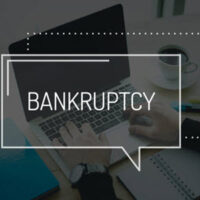Sole Proprietor? Eliminate Personal And Business Debts Through Bankruptcy

Many people dream of being their own boss and running their own business. While being a sole proprietor has many benefits, it also carries heavy responsibilities. You can be held personally liable for debts your business accrues while unexpected mishaps in your personal life and your own financial struggles can also dramatically impact your bottom line. Our New York City business bankruptcy attorneys explain some of the options for eliminating both personal and business debts.
Chapter 7 Bankruptcy For Sole Proprietors
A sole proprietorship is a business owned by a single individual in which there are no legal distinctions between them and the business entity. This offers numerous advantages, which include greater control, simplicity of record keeping, and tax benefits, but it also can create serious liability issues if your business falls upon hard times.
According to the website Startups.com, there are over 23 million sole proprietorships in the United States. While they represent 73 percent of all businesses, they are also the ones most likely to encounter difficulties. Losses in profits, supply chain issues, legal problems, and heavy personal debts can all make closing your doors the only viable option. In this case, filing a Chapter 7 bankruptcy can provide a solution. This type of bankruptcy, referred to as a liquidation, can eliminate a variety of both personal and professional debts, including:
- Past due lease obligations;
- Utility bills;
- Unfulfilled contracts;
- Outstanding payments on orders;
- Deficiency amounts on foreclosures or repossessions;
- Personal loans and credit card balances;
- Medical bills;
- Past due tax debts.
Once you file for Chapter 7 bankruptcy, an automatic stay goes into effect. This protects you against credit harassment and prevents any further legal or collections actions being taken against you.
Filing For Chapter 11 As A Sole Proprietor
What if you are struggling with outstanding debts as a sole proprietor but do not want to close your business? Filing for Chapter 11, referred to as a reorganization, may be a better option. The Small Business Reorganization Act of 2019 (SBRA) makes filing for bankruptcy easier for small companies, including sole proprietorships. Some of the benefits it offers includes:
- The ability to negotiate more favorable terms on contracts;
- Allows you spread out repayments on secured debts over longer periods;
- Lets you eliminate certain unsecured debts;
- Provides a tangible blueprint in regards to financial recovery, helping you remain in business.
Whereas a Chapter 7 bankruptcy is used mainly for closing a business (and has restrictions regarding opening the same type of enterprise in the years after), a Chapter 11 bankruptcy can help you ride out tough times and establish your footing as a sole proprietor.
Discuss Your Options With Our New York Bankruptcy Attorneys Today
As a sole proprietor, there are options available to protect both your business and yourself from personal liability. If your business is showing signs of trouble, it is important to be proactive in terms of exploring possible solutions. To discuss your options, reach out to the Law Office of Harry D. Lewis. Call or contact our New York bankruptcy attorneys online and request a free consultation today.
